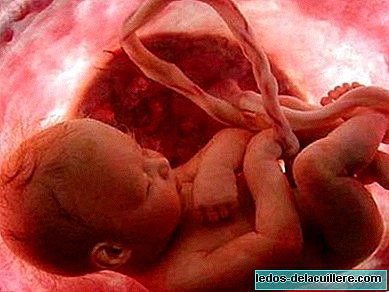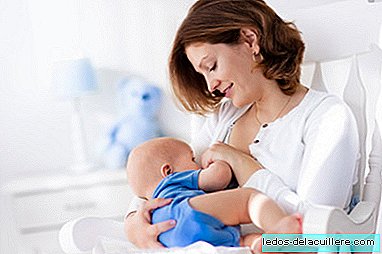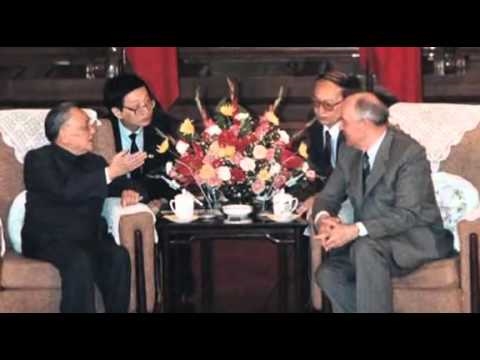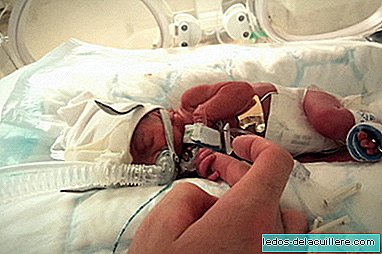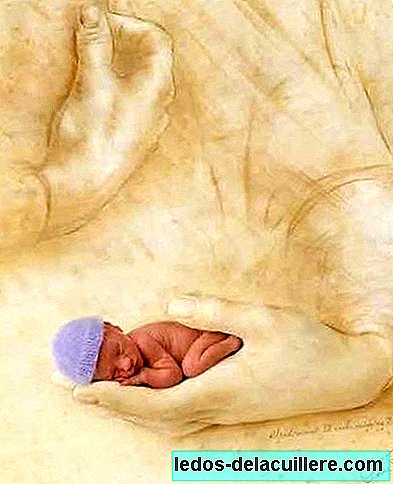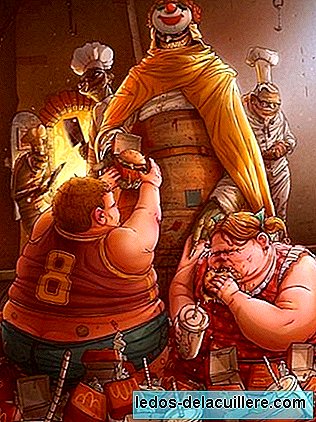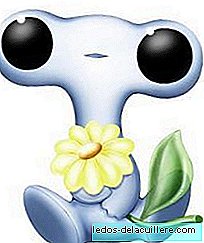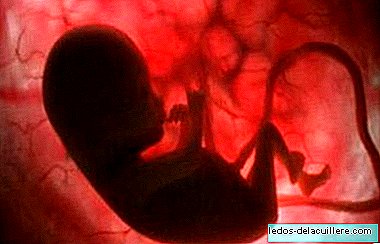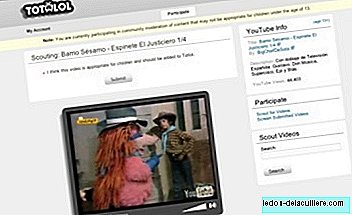How long is it recommended to give breast milk to a baby or child? Because until a few years ago it was said that at most at 6 months, that afterwards milk is like water and does not feed, then it began to be said that until the year, that then milk is transformed into water, and finally that up to two years minimum and until the mother and the child decide, what is recommended by UNICEF, WHO, the AEP, etc.
Until 2 years? There are already people who think that is excessive, but it is increasingly easier to see older children taking breastfeeding from their mothers. Children of 3, 4 years, and there are up to 6 years (and more), as is the case with Maha Al Musa, a woman from Australia who breastfeeds his 6-year-old daughter, even in public, and also does not vaccinate him because he says his milk has "special powers". It is normal? It is advisable? Is this woman crazy? Let's talk about it.
Official recommendations say ...
Health agencies say that it is recommended that a baby be breastfed on demand and exclusively up to 6 months. From that moment, the complementary feeding begins and the baby must continue to be breastfed, because until the year of life it is considered that breast milk should continue to be the main food. Once the baby turns one year the volume of food should be greater than that of breast milk, but it is advised that continue to receive breast milk for at least two years, because it continues to receive immune cells (defenses), various nutrients, probiotics and prebiotics, factors that help the development and growth of the brain and other organs, etc. After two years, it is recommended that they continue breastfeeding until the mother or child decides to stop.
If we look, there is no maximum. It is not said "until the mother or child decides to leave, but never beyond 5 years." It is said that until one of the two says "I do not want more", and this moment is very variable because sometimes it is the mother who decides that she does not want to breastfeed while other times it is the child who decides to leave it , sometimes at 2 years, sometimes at 3, sometimes at 4, sometimes at 5, sometimes at 6, and sometimes, because it does not leave. Does this mean that you will never leave it? No. At some point you will stop doing it, basically because a child does not live forever with his mother (This takes us at 30-35 years!) And because although the mother says nothing, children often find other ways to relate to their mother, to be comfortable with her and to enjoy her company, a time that usually arrive sometime before 10 years. But beware, I do not say it as a maximum in the "maximum 10 years" plan, but as a moment from which it is very unusual.
In Babies and more we have ever talked about this subject and we know, through anthropology, that The natural age of human weaning is between 2.5 and 7 years. Does this mean that after 7 years is already too much? Well no, I repeat, there is no advisable maximum. That's what anthropology says looking at the past. But now we are not in the past, we are in the present, and customs change, so now these figures may vary.
But does that milk already feed?
Meeec! Error. Wrong question. People often wonder about how much they feed or stop feeding the milk and the "experts" think about it by saying that "it doesn't make sense, that milk doesn't feed anymore." To get started, it is still more beneficial for the girl to drink her mother's milk than to drink a cow's milk. Do we not give our children 6 years and more cow's milk? Because I do. If I even take it, I'm 36 years old! I drink milk from a cow, mother, who knows how many years she has been giving milk after giving birth to her calf. The same has been giving milk for 7 or 8 years and hey, it has not turned into water! Because I do not see in milk bricks that I say anything about "milk from cows that have been milked for 2 years" or "milk from cows that have been milked for 5 years". In the latter, I would expect more watery milk, according to the theory of breast milk, and it would be cheaper, but this does not happen: milk does not transform water, neither that of the cow, nor that of the woman.
But I repeat, wrong question. A woman who breastfeeds her 6-year-old daughter doesn't do it because she thinks her milk is better or worse, she does it because it is a relationship that you have established with the girl and they communicate and love each other that way. Even if the milk did not feed (feed), they would continue to do so.
But is normal? It is advisable?
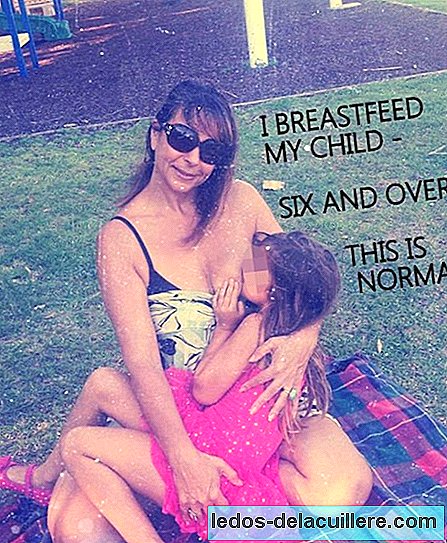
If we compare with today, it is unusual. If we compare it with a few centuries ago, it sure is normal. So, as I usually say, normality does not always define what is right or wrong. In our country, for example, it is normal for politicians to be corrupt. There are so many that we consider normal, but that does not mean that it is well.
To the question of whether it is advisable, I leave it in a "no yes, no no, not the opposite." As I said, it will always be better than drinking cow's milk. In fact, would we ask ourselves the same question if instead of breastfeeding, the mother drank the milk and gave it to her daughter in a glass every morning? Because we would surely accept that all much better. Perhaps what grinds is the fact of seeing such a big girl caught in her mother's chest. So we are no longer talking about milk, but about vice, how bad it is, how that can affect the development of a girl of that age. In that case we have to ask ourselves several questions: does it affect it in any way at the level of autonomy? Is that the way she has to manage problems? Isn't he able to deal with conflicts at school because he doesn't have his mother's tit?
Surely we can answer the first question that does not affect him, because as we read in Mirror, this mother explains that she breastfeeds for a while at night and whenever the girl asks, and she says she likes it because "it tastes like candy." That is, the girl focuses on the taste rather than the love of mom or how good she is with her. Surely he enjoys it, of course, but she explains it like this, that he likes how he knows. On the second, we can surely explain that he does have other ways of managing the problems that go to mom's tit to calm down. She is a 6-year-old girl and that makes her much more rational and capable than a 2 or 3-year-old boy, so she sure has a lot more lexicon and much more ability to relate to her mother, father or whoever. And on the third, yes, surely he is able to live without his mother's chest at school and anywhere.
And if it were not so, if it were seen that she is a child with problems of adaptation, autonomy and relationship, then it would be necessary to work with the girl, with the mother, with the father and with the environment in general, because then the fact of sucking for a while at night becomes secondary and we should look for the real problem of it, which is sure to be a much bigger and more important problem where the tit happens to be an anecdote.
So although it is not usual, it does not seem scandalous or not recommended. They are just a mother and her daughter following a relationship that began 6 years ago. Surely since he was born, his mother gives him many kisses, and now he still does. Surely when he was born he gave hugs and now he does too. Surely he told her how much he loved her and now he does too. In this sense, there is no difference. He was breastfeeding and still giving him, much less, until the girl (because the mother seems not to leave) decides to leave. And when he leaves it, it will surely be because of external pressure, because other children will call him "Baby!", Because they will laugh at her, because they will ridicule her. Then he will say that he does not want more and again that will be fulfilled that sometimes one does not have the problem, but others who are little tolerant of the difference.
But if he says his milk has powers!
Already There this woman should be informed a little, because she says she does not need to vaccinate her daughter because her milk has powers. If their milk has powers, those of women of centuries ago, who were breastfeeding and whose children were dying of diseases that are prevented by vaccines today, they also had them. But no, their children were dying and those children today live thanks to hygiene and thanks to vaccines, because of how much hygiene we have today, if your child catches according to which virus is at risk of having a very bad time.
Breast milk has many properties and defends the baby from many pathogens, but It has no super powers. We know that a breastfed child has less risk of infection, that in case of getting sick, his illness lasts less days, than in case of admission the stay lasts less time ... but as we said a few days ago, they are not really advantages, but normal What happens is the opposite, that children who take a bottle have on average more infections, if they get sick they take longer to heal and in case of admission, the hospital stay lasts longer.
Breast milk continues the work done by the placenta inside, providing defenses, but that does not mean that it can save children from catching any major illness. Do you not have breastfed children suffering from infections, bronchitis and colds? Well, if they catch these viruses, how can they not catch measles, rubella, diphtheria, meningitis or polio, to give some examples? There is nothing that protects against it beyond vaccines, so, as I say, you should review the information you receive and read, because you are wrong.
Summarizing
It is not usual to see mothers who breastfeed their sons and daughters aged 6 or more, but there are, and therefore there should be more or less problems at the level of relationship with the mother or with other people. In fact, if everything goes well, if there is respect between them and they leave space to be themselves, individual beings (what has to happen in any mother-son or father-son relationship), I see this girl more likely to be more independent than other children of the same age whose mothers, without breastfeeding, can be more "helicopter" (always flying over their little ones so that nothing happens to them) or more overprotective.
Summing up then, at the food level, it is still a good food and better than cow's milk. On an emotional level, it's just one more way to relate to your mother, to add to the kisses, laughs, hugs, cries, dialogues, discussions, games and kisses. The only problem is the "what will they say" and then the problem is not always of the mother and the girl, but of those who will say what they will say.


